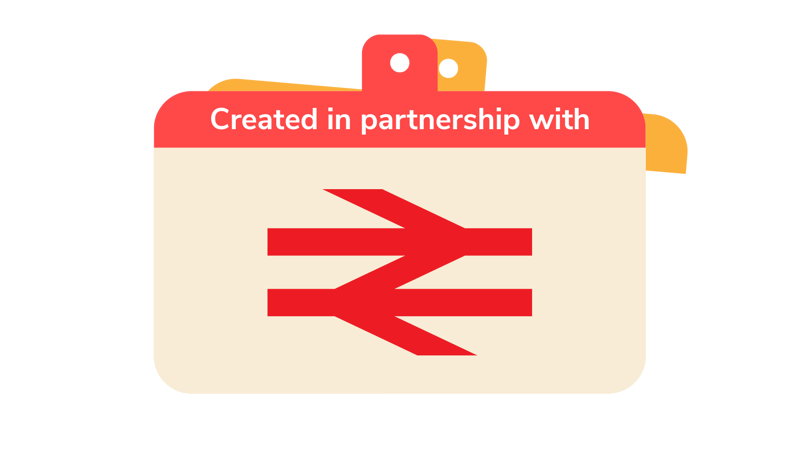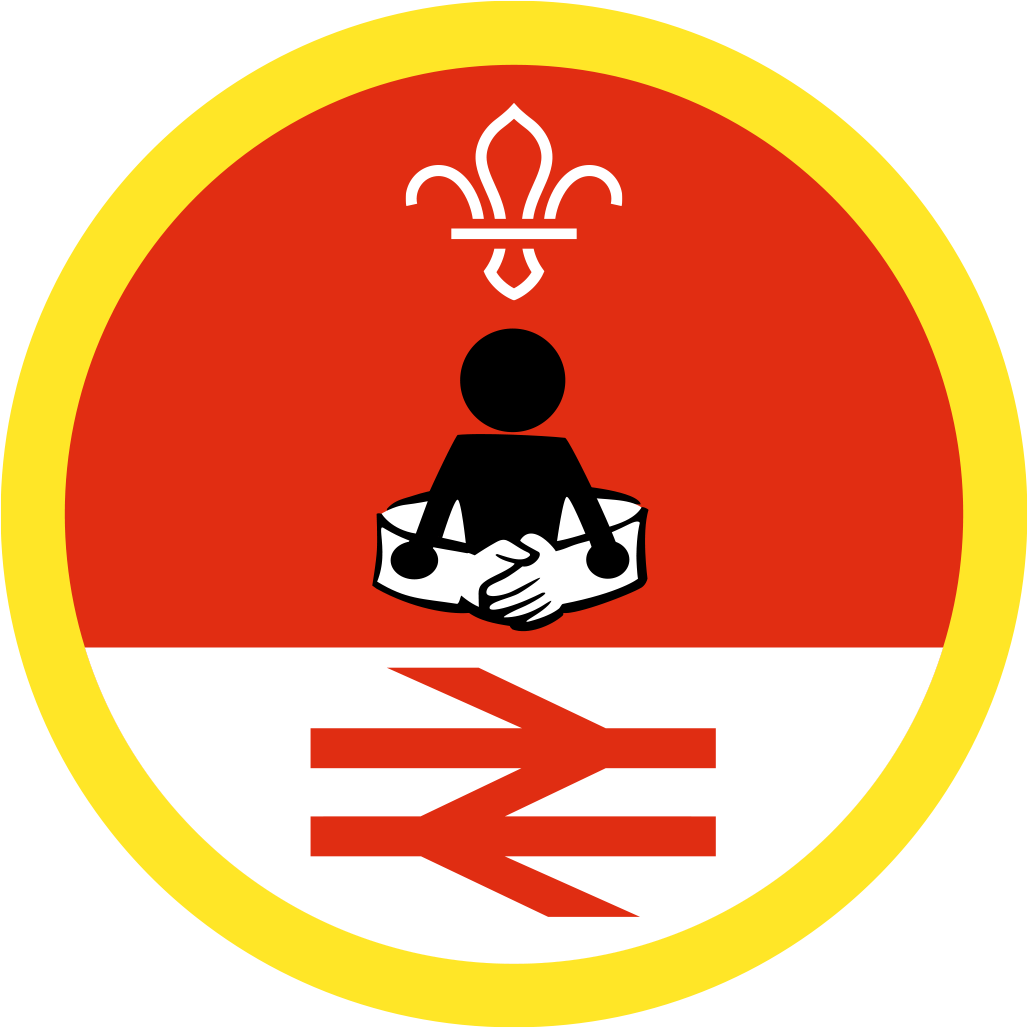
See it, say it, sorted
You’ll need
- A4 paper
- Pens or pencils

Don’t be afraid to report anything that feels out of place. The Rail Industry rely on information from the public to help them keep the rail network safe. Things that feel out of place could include someone avoiding rail staff or police, leaving a bag on the railway, checking out security arrangements like CCTV, or other things. If it doesn’t feel right, let a member of know. They’ll check the information thoroughly and decide if what you’ve seen (or what you know) is important.
The Rail Industry
Before you begin
- This activity’s all about giving people the opportunity to practise their observation skills – and speaking up when something seems out of place. The activity of making up the code is important too, as it counts towards a badge requirement.
- You could run this activity alongside other activities from The Rail Industry (such as 'As quiet as a train' and 'Beware the Bubble') for a railway safety session.
- Work with the other leaders to think about routines and things that people are used to seeing and doing in your meetings. What small changes could you make? For example, a leader could turn up in a different uniform or scarf, or wearing odd shoes; you could open your meeting in a different place or facing a different way; or a leader could act flustered and confused, and get things wrong.
- Work with the other leaders to choose some unusual things to add to the meeting. Think about things people might notice are different. For example, putting tables and chairs in different places (or safely upside down or on their sides), putting things in unusual places (for example, taking a clock off the wall and putting it on the floor), a leader behaving unusually, or an unattended bag being left in the meeting place.
- Plan out the changes with all of the leaders, so you know who’ll do what and when it’ll happen.
Get stuck into the meeting
- Just before the meeting, the people leading the activity should quickly refresh their memories so they know what unusual changes they’ve planned.
- The person leading the activity should ask if anyone’s heard ‘see it, say it, sorted’ while they’re at a train station or on a train. What do they think it means?
- The person leading the activity should read the key message from the box above. They should explain that this safety message comes from The Rail Industry – it’s about telling an adult if you see something unusual or out of place. This way, the experts can check to make sure it’s not unsafe or dangerous.
- Everyone should split into small groups. Each small group should get a pen or pencil and some paper.
- Each group should try to come up with five things that, together, are a safety code that tells people how to be safe around train lines, train stations, and level crossings. Groups should try to make their codes memorable, for example, with alliteration, rhyme, a mnemonic, or even a song.
- Meanwhile, while everyone’s coming up with their safety codes, the leaders should get stuck into the unusual changes they’ve planned. Hopefully, some people will notice and tell an adult what they’ve seen.
- Once everyone’s finished and shared their codes, the person leading the activity should ask if anyone noticed anything unusual or out of place. They should reveal all of the mischief that the leaders got up to. How many did people spot? If anyone spotted something and didn’t tell a leader, why didn’t they?
Don’t single anyone out here – this is a safe space to learn, so it’s OK if they didn’t speak up this time.
- The person leading the activity should make sure everyone remembers the key message before they go home.
Reflection
This activity was all about being responsible and problem-solving. Can anyone remember the message from The Rail Industry? ‘See it, say it, sorted’ keeps everyone on the railway safe. Did people notice the leaders doing unusual things? What made people more or less likely to speak up?
What did everyone put on their codes? What sort of problems might their codes help people to avoid or solve? Staff at railway stations are always problem-solving, from helping passengers with queries to making sure trains work and run on time. How can people help staff at railway stations? They can tell an adult if something doesn’t look right, remember to be friendly, and ask for help if they’re unsure what to do.
Safety
All activities must be safely managed. You must complete a thorough risk assessment and take appropriate steps to reduce risk. Use the safety checklist to help you plan and risk assess your activity. Always get approval for the activity, and have suitable supervision and an InTouch process.
Makes the changes as discrete or obvious as you like, depending on your group.
You may need to reassure people that travelling on the railway is safe. Young people don’t need to worry about figuring out exactly what’s going on; everyone just needs to know to tell an adult about anything that doesn’t look right. You could explain that ‘see it, say it, sorted’ helps people in lots of ways (and isn’t just about violence and terrorism), for example, someone acting unusually might be unwell and in need of help, or a bag on its own might be lost and staff could help reunite it with its owner. Once someone’s spotted something unusual, it’s up to the grown-ups to find out what’s going on and decide what to do.
All Scout activities should be inclusive and accessible.
Why not arrange a visit to a local train station? Contact them in advance to arrange a suitable time to visit – staff might be able to give you a tour, chat to everyone, or answer their burning questions.
